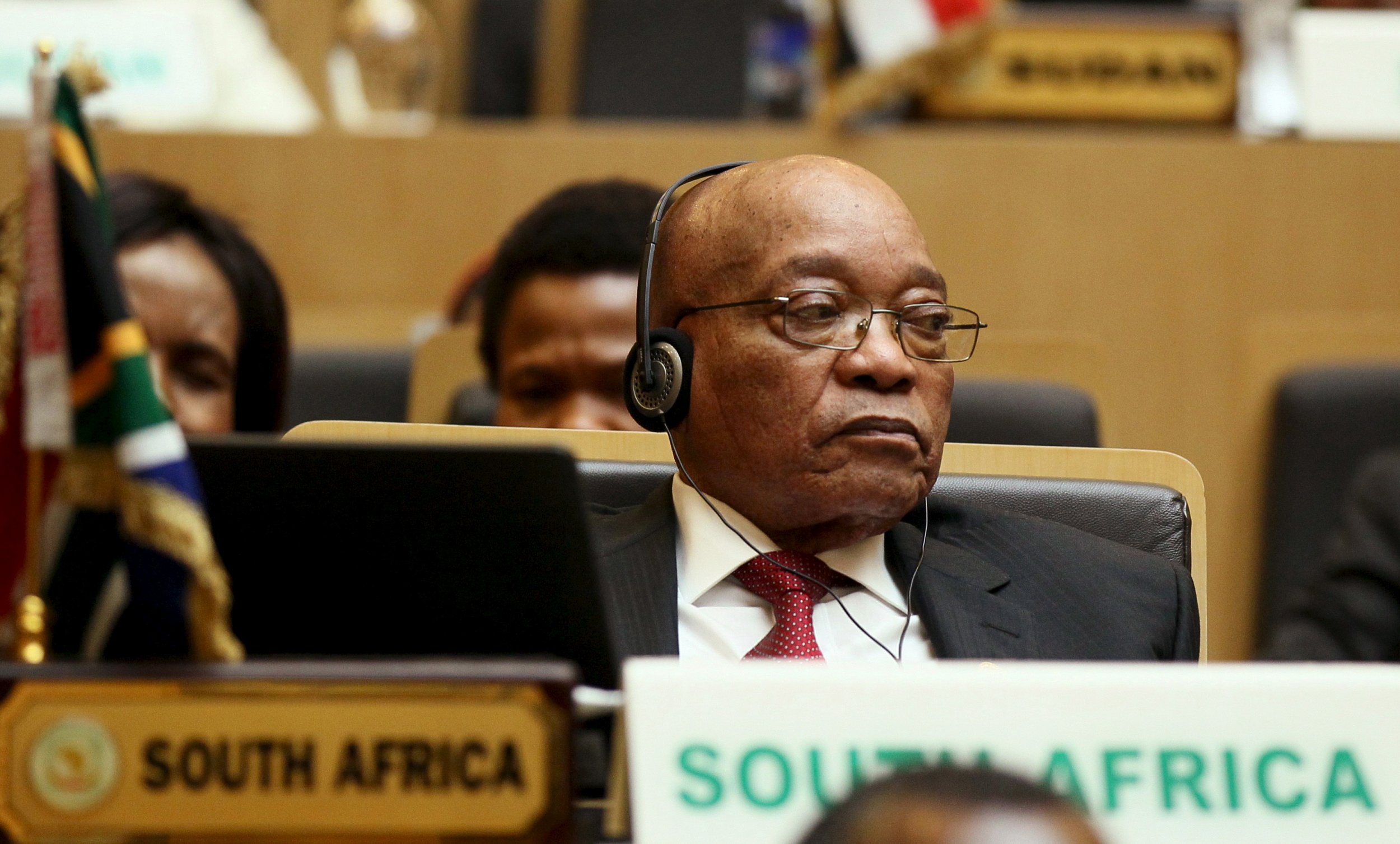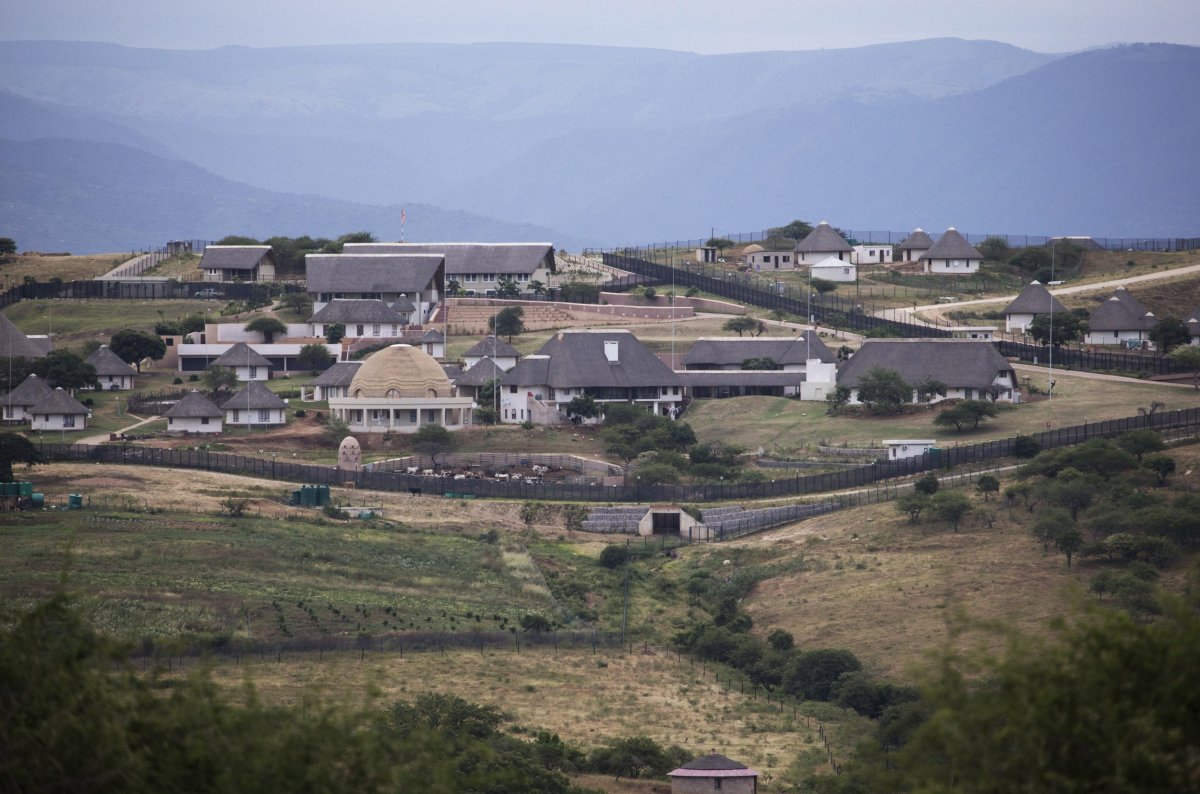
The two main opposition parties in South Africa have rejected a proposal by President Jacob Zuma to resolve a long-running dispute over controversial upgrades to the president's home.
South Africa's Constitutional Court had given the main opposition Democratic Alliance (DA) and the left-wing Economic Freedom Fighters (EFF) until Friday to respond to an offer made by Zuma to pay back part of the public funds spent on improving his estate in Nkandla, in eastern South Africa.
After no deal was reached, the matter will now be discussed in the Constitutional Court on Tuesday.
What is Nkandla and why is it controversial?
Nkandla is the name given to President Zuma's sprawling homestead in the coastal province of KwaZulu Natal. Zuma has reportedly occupied the estate since 2000 and the number of buildings on the site has more than doubled since then. In March 2014, South Africa's Public Protector Thuli Madonsela issued a report, numbering more than 400 pages, which found that Zuma had "benefited unduly" from upgrades to the homestead—including a cattle enclosure, swimming pool and amphitheater—that were funded with state money and cost an estimated 246 million rand (worth $23 million at the time). Madonsela's report—titled Secure in Comfort —said that Zuma should pay some of the money back, but did not specify how much.

What does Zuma say?
At first, the Zuma government insisted that the upgrades were necessary security improvements: the swimming pool, for example, was characterized as necessary firefighting equipment, according to The New York Times. Following the report's publication, Zuma's African National Congress (ANC) attacked Madonsela, with the deputy defense minister, Kebby Maphatsoe, accusing the public protector of being an agent of the CIA.
Ahead of Tuesday's date in the Constitutional Court, Zuma made a last-ditch attempt to resolve the matter out of court. The presidency released a statement on Wednesday, with Zuma offering to repay part of the Nkandla funds and saying that the amount should be determined by the auditor-general and minister of finance. The statement made it clear that Zuma still "remains critical of a number of factual aspects and legal conclusions" in Madonsela's report.
What do the opposition say?
They have flat-out refused Zuma's proposal. Mmusi Maimane, leader of the DA, released a video on Friday explaining that his party was rejecting Zuma's offer. Upon his election as the first black DA leader in May 2015, Maimane told Newsweek that the Nkandla scandal showed that Zuma was becoming "a law unto himself and dangerous for South Africa."
Julius Malema, the firebrand leader of the EFF, was in no mood to compromise when he addressed the issue on Thursday. Speaking at a press conference, Malema said that Zuma "was in breach of the Constitution and his oath of office" by failing to implement the remedial action recommended by Madonsela's report. "We will not agree that he had all the right to behave in the manner he did," said Malema.
What happens next?
The case goes to the Constitutional Court on Tuesday. The court will hear arguments from the DA and EFF that Zuma must comply with the recommendations made in Madonsela's report, which include repaying the costs of non-essential upgrades—such as the swimming pool—and reprimand the ministers involved in the managing of the Nkandla project.
The case will come just two days before Zuma's annual State of the Nation address to the South African parliament on Thursday. The 2015 address was a feisty affair: EFF members, who shouted at Zuma to pay back the Nkandla money, ended up brawling with security forces who tried to eject them from parliament.
Uncommon Knowledge
Newsweek is committed to challenging conventional wisdom and finding connections in the search for common ground.
Newsweek is committed to challenging conventional wisdom and finding connections in the search for common ground.
About the writer
Conor is a staff writer for Newsweek covering Africa, with a focus on Nigeria, security and conflict.
To read how Newsweek uses AI as a newsroom tool, Click here.








